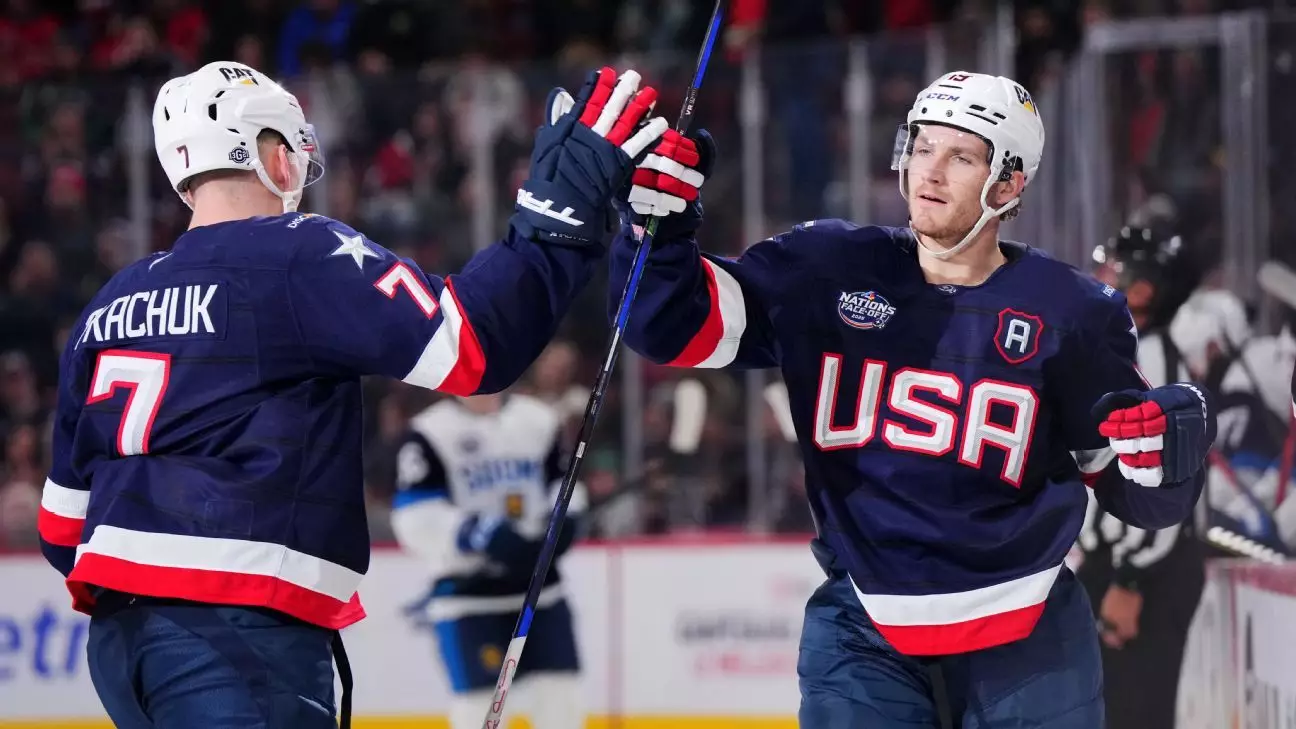The NHL 4 Nations Face-Off championship game recently unfolded in Boston with an intriguing backdrop that transcended just the sport. As the United States and Canada prepared to clash on the ice, the specter of President Donald Trump’s remarks loomed large, highlighting the complex interplay between politics, national pride, and sportsmanship in the realm of hockey.
In the lead-up to the match, both teams found themselves reflecting not just on strategy and performance, but on the implications of national identity. President Trump called Team USA, marking a unique moment for the players. Vincent Trocheck described the experience as surreal, suggesting that being recognized by the president of the United States signals a monumental convergence of politics and sports. For many athletes, such acknowledgments can energize a team, bolstering morale as they aim for victory on an international stage.
Conversely, Team Canada’s athletes had their own reactions to Trump’s assertion that Canada could become the “51st state.” Such comments resurrected historical narratives concerning national autonomy and cultural integrity—particularly poignant in light of ongoing political tensions between the two countries. These very remarks highlight how deeply intertwined politics can be with sporting events, especially in a sport as culturally significant in both countries as hockey.
As the match day approached, it became increasingly evident that the championship was more than a mere contest for a trophy. It transformed into a battleground for national pride, one that was ignited by a charged atmosphere enthusiastic yet contentious. Reports indicated that booing erupted from fans during the national anthems, a gesture that boiled down to more than mere rivalry. It underscored how the political climate—marked by Trump’s comments—had seeped into the hearts and minds of the supporters present.
The teams’ experiences throughout the tournament suggest that this political backdrop inevitably influenced their game preparation. Coach Jon Cooper of Team Canada commented on how the playful banter within the locker room occasionally touched upon Trump’s statement regarding statehood, reflecting an awareness and acceptance of the political chatter surrounding the game. Yet, the focus remained fixed on the ice, as representing one’s country is paramount for the athletes involved.
Tensions were palpable during the teams’ previous encounters, where emotions surged alongside competition. The first game between the U.S. and Canada in this series saw fights almost immediately, a reflection of rivalries that extend beyond sports into the socio-political realm. The early altercations in that match echoed a societal narrative of division that often becomes amplified in sporting events, making every victory appear not just as a sporting achievement, but as a national triumph.
The second game of the series, marked by equal fervor and passion, promised a rematch filled with anticipation and national sentiment. As Team Canada fought their way to a victory against Sweden to reclaim their position, the stakes were not solely about achieving a win on the ice; they were about bolstering their national spirit in the face of overlapping political discourses.
Amidst the rivalry lies an overwhelming wave of support from fans on both sides, enhancing the spectacle of the occasion. Player JT Miller spoke of the thrill that came along with Trump’s engagement, encapsulating the duality of sport as a unifier and a divider. The notion of hockey as a national sport also exposes fissures in cultural identities—drawing from shared history while also emphasizing the divergent paths Canada and the U.S. have taken, accentuated by the political landscape.
As the game commenced, the backdrop of national pride firmly overshadowed individual aspirations. Amid cheers and jeers, players were tasked not only with securing a win for their team but to champion their national identity on a platform that resonates deeply with citizens from both nations. In a sport where loyalty and pride run deep, the NHL 4 Nations Face-Off thus reflected more than just skill; it stood as a testament to how deeply politics and sports are woven into the fabric of national identity and pride.


Leave a Reply